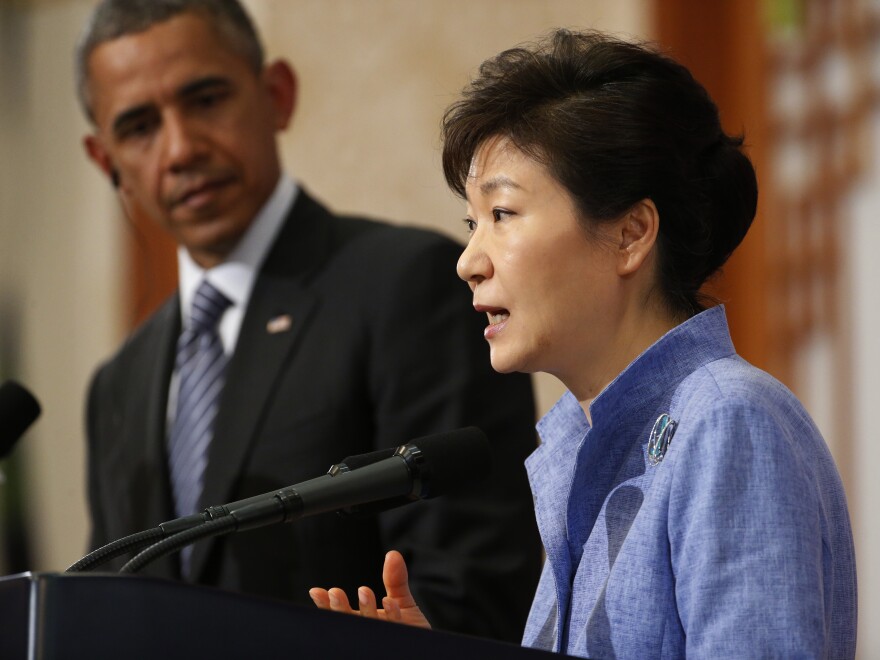President Obama and the Pentagon are hosting South Korea's president, Park Geun-hye, this week. At the White House summit Friday, the two leaders are expected to reaffirm one of America's longest-running alliances in Asia. But the tough policy question they have to tackle is what to do about South Korea's unruly northern neighbor.

At Camp Red Cloud, a U.S. Army base an hour north of Seoul, the training to prepare for war happens year-round. It's at places like this that the alliance between the two countries is obvious, as soldiers from both nations work side by side — part of a Korea-U.S. alliance forged in the theater of war 65 years ago.
"This is ground zero for the alliance where [Republic of Korea] and the U.S. combine at the user level, at the lowest tactical level, I would say, to really, you know, execute policy," says Maj. Gen. Ted Martin, the 2nd Infantry Division/ROK-US Combined Division commander.
And their simulations are never too far from reality. As recently as August, tensions flared when land mines maimed two South Korean soldiers on the border. The South retaliated by blasting propaganda loudspeakers at the North, and North Korea showed its displeasure by readying its forces to fight.
"We're in South Korea, we're looking at North Korea. And should North Korea devolve into some sort of chaos, if they decide to invade, whatever the situation might be, war fighter [exercises] are supposed to make sure the division can communicate with all its troops," says Lt. Col. Chris Hyde.
Broad policy questions are on the agenda as Obama meets with Park. The summit — rescheduled from this summer — now falls after that August brinkmanship on the border.
"We're focused on this in real time," says Deputy U.S. Secretary of State Tony Blinken, who maintains denuclearization is still the goal. But even in the face of international sanctions and warnings, North Korea doesn't seem to be deterred from its weapons development — or testing.
"The last time North Korea took a provocative action and tested, the U.N. Security Council not only took strong steps against North Korea then, but said if there were future provocative actions, there would be significant measures taken as a result," Blinken says.
The question is what best "measures" to consider. Tufts University's Lee Sung-Yoon suggests sanctions against individuals — and sunlight.
"Engage the North Korean people, rather than the regime," Lee says. "That is, reach out to the North Korean people about the outside world, about freedom, about the conditions of life in that other Korean state, the one that is far more pleasant."
North Korea's leader, Kim Jong Un, has worked to reinvigorate his nation's economy, but not at the expense of the military, which got a huge show last weekend. So, should any new battles break out, it's alliance leaders like Gen. Martin who'll have to act on the ground level.
"Before Iraq and Afghanistan, even the units who had to go on really short notice, they had time to think about it. They had time to go home and make sure they had their little plans for their families squared away. Here, should the unthinkable happen, that's it, we're in it," Martin says.
An alliance that's lasted for decades has gotten stronger, partly because of an unruly neighbor to the north.
Copyright 2021 NPR. To see more, visit https://www.npr.org.



